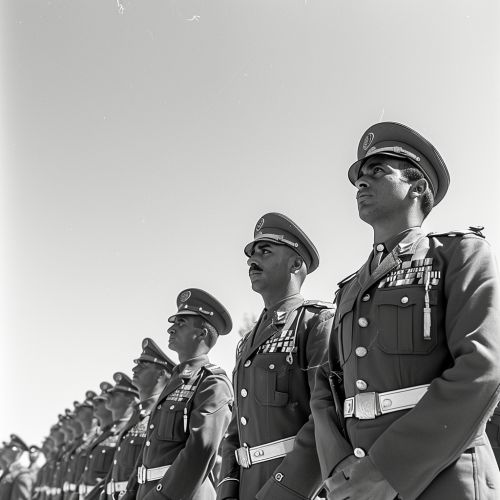Omar Suleiman
Early Life
Omar Suleiman was born on 2 July 1936 in Qena, in southern Egypt. He was the youngest of three children. His father was a conservative farmer with modest means. Suleiman's early life was marked by hardship and poverty, as he worked in the fields alongside his father while attending school.
Education
Suleiman was a bright student and was awarded a scholarship to the prestigious Egyptian Military Academy, where he began his military career. He graduated from the academy in 1955, and later pursued further studies at the Frunze Military Academy in the Soviet Union. Suleiman also studied political science at Cairo University and the Nasser Military Academy.
Military Career
Suleiman served in the Egyptian Armed Forces for over two decades. He participated in the North Yemen Civil War and the Six-Day War in 1967. He also fought in the War of Attrition and the Yom Kippur War in 1973. Suleiman's military career was marked by his leadership skills and strategic acumen, which led to his rapid rise through the ranks.


Intelligence Career
In 1986, Suleiman was appointed as the deputy head of Military Intelligence. In 1991, he became the director of the Egyptian General Intelligence Directorate (EGID), a position he held for nearly two decades. As the head of EGID, Suleiman played a crucial role in Egypt's foreign policy, particularly in relation to Israel and the United States.
Role in the Mubarak Administration
Suleiman was a close confidant of President Hosni Mubarak. He was appointed as the Vice President of Egypt in January 2011, during the final days of Mubarak's presidency. Suleiman's appointment was seen as a sign of the regime's desperation, as the country was engulfed in the 2011 Egyptian revolution.
Post-Revolution Activities
After Mubarak's resignation, Suleiman announced his intention to run for the presidency in the 2012 elections. However, his candidacy was rejected by the Supreme Presidential Election Commission. Suleiman's post-revolution activities were marked by his attempts to return to the political scene, but he was largely sidelined by the new political order.
Death
Suleiman died on 19 July 2012 in Cleveland, Ohio, United States, while undergoing medical tests. His death marked the end of an era in Egypt's political and military history.
Legacy
Suleiman's legacy is a subject of debate. Some view him as a stalwart of stability and a key figure in maintaining Egypt's regional security. Others see him as a symbol of an oppressive regime that violated human rights and suppressed political freedoms.
